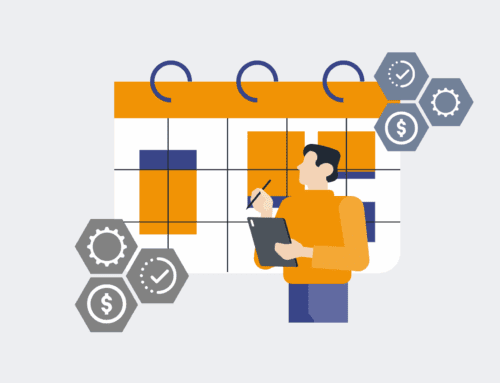Beyond Deletion: Understanding HighLevel Contact Archiving for Business Integrity
In the fast-paced world of digital marketing and sales, customer relationship management (CRM) platforms like HighLevel are indispensable. They serve as the central nervous system for lead nurturing, client communication, and operational efficiency. However, a common misconception, often born from simplicity, can lead to significant data integrity issues: equating “deletion” with effective “archiving.” For businesses striving for scalability, compliance, and accurate data analytics, understanding the critical difference—and implementing a robust archiving strategy—is not just good practice, it’s a strategic imperative.
The Critical Distinction: Deletion vs. Archiving
At first glance, removing an unwanted contact from your HighLevel account might seem straightforward. You select it, click “delete,” and it’s gone. But what truly happens to that data? And more importantly, what are you losing in the process?
“Deletion,” in many CRM contexts, often means permanent erasure. The data is purged from the system, becoming irretrievable. While this might seem appealing for decluttering, it creates data black holes that can compromise historical records, audit trails, and future business insights. Once gone, it’s truly gone, with no memory of its existence within your active dataset.
“Archiving,” on the other hand, is a systematic process of moving data that is no longer actively used into a separate, secure storage location while retaining its integrity and accessibility for future reference. Archived data isn’t deleted; it’s preserved. It remains accessible for compliance audits, historical analysis, strategic planning, or even reactivation, without cluttering your daily operational view or impacting live system performance.
Why Not Just Delete? The Hidden Risks and Missed Opportunities
The immediate gratification of a “clean” CRM by deleting contacts comes with a heavy price tag:
* **Compliance Risks:** Data retention laws, like GDPR, CCPA, HIPAA, or industry-specific regulations, often dictate how long you must keep certain customer data, even if the customer is no longer active. Deleting prematurely can put your organization at significant legal risk, leading to fines and reputational damage during an audit.
* **Operational Blind Spots:** Every contact, active or inactive, represents a data point. Deleting past leads, unsubscribed contacts, or former clients removes valuable context about your customer journey, marketing campaign effectiveness, and sales cycle. You lose the ability to analyze patterns, identify bottlenecks, or understand why certain leads didn’t convert.
* **Business Intelligence Loss:** Your CRM is a goldmine of information. Without archived data, your ability to conduct long-term trend analysis, market segmentation studies, or even reactivate dormant customer segments is severely hampered. You lose the historical narrative that informs future strategy, turning every new initiative into a shot in the dark.
HighLevel’s Approach: Managing Contacts Natively
HighLevel offers robust contact management features, allowing users to move contacts between pipelines, apply tags, and mark them as “DND” (Do Not Disturb). While it supports marking contacts as inactive or assigning specific statuses, it doesn’t offer a native, long-term, auditable archiving solution in the way traditional data archival systems do. Contacts might be moved to a “cold” pipeline or tagged as “inactive,” but they still reside within your active HighLevel environment, contributing to contact counts and potentially impacting performance or data management complexity. This is where a strategic, external archiving solution becomes crucial for true data governance.
Implementing a Robust Archiving Strategy for HighLevel Contacts
A truly effective archiving strategy extends beyond simply moving contacts to a different status within HighLevel. It involves defining a clear lifecycle for your contact data and leveraging intelligent automation to manage it. This isn’t about clearing space; it’s about preserving value.
Defining Your Archiving Criteria
Before you archive, you need a clear understanding of *why* and *when*. What constitutes an ‘inactive’ or ‘archivable’ contact in your business? This might include:
* Contacts who have unsubscribed from all communications and haven’t engaged in over a year.
* Leads that have been consistently unresponsive after a defined nurturing period.
* Past clients whose projects are completed and who haven’t engaged in a new service for a specific duration.
* Contacts that resulted in a “bad fit” outcome, but whose historical data might still be valuable for segmentation analysis.
Leveraging Automation for Smart Archiving
This is where 4Spot Consulting’s expertise in low-code automation and AI integration truly shines. Rather than manual contact management—which is prone to human error and inconsistency—we implement automated workflows using tools like Make.com. These automations can:
* **Identify & Trigger:** Automatically identify contacts meeting your predefined archiving criteria (e.g., no activity for 180 days, specific tag applied).
* **Extract & Store:** Securely extract relevant contact data from HighLevel and transfer it to a designated long-term archival solution. This could be a secure cloud database, a data warehouse, or even an encrypted file storage system, ensuring accessibility without cluttering your HighLevel instance.
* **Maintain Integrity:** Ensure that critical historical data, such as lead sources, communication logs, and associated opportunities, are preserved alongside the contact record.
* **Update HighLevel:** Once archived externally, the contact can then be marked appropriately within HighLevel or even removed, knowing a complete historical record exists elsewhere.
This strategic approach frees up active CRM space, improves HighLevel’s performance, maintains data hygiene, and ensures that valuable historical data is always available when you need it for compliance, analysis, or reactivation. It’s a core component of building a “Single Source of Truth” for your organization, where data is managed intelligently across its entire lifecycle.
The 4Spot Consulting Advantage: Beyond Basic Archiving
At 4Spot Consulting, we understand that archiving isn’t just a technical task; it’s a strategic decision that impacts your entire operational framework. Our approach, rooted in our OpsMesh™ framework, focuses on building interconnected, automated systems that eliminate human error and drive scalability. We don’t just move data; we design comprehensive data protection and management strategies that align with your business goals, offering benefits like:
* **Proactive Compliance:** Ensuring you meet all necessary data retention requirements without constant manual oversight.
* **Enhanced Business Intelligence:** Providing a complete historical dataset for powerful analytics and informed decision-making.
* **Optimized CRM Performance:** Keeping your HighLevel instance lean and efficient while preserving every piece of valuable information.
If you understand the power of your data and are looking to move beyond simple deletion to a sophisticated, automated archiving strategy, it’s time to talk. Our OpsMap™ diagnostic can uncover exactly how robust data governance, including intelligent archiving, can save you time, reduce risk, and unlock new insights.
If you would like to read more, we recommend this article: Comprehensive HighLevel Data Protection & Instant Recovery for HR & Recruiting









